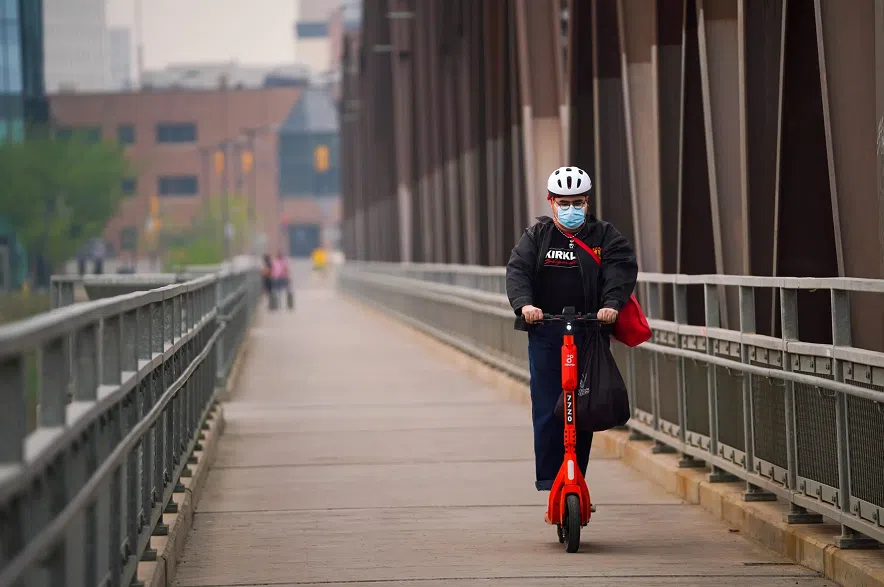This smoke drifting across Saskatchewan could have a bigger impact on you than you realize.
The air quality index across Saskatchewan is trending higher than normal due to wildfire smoke, and air quality advisories from Environment Canada remained in effect on Friday for large parts of the province.
READ MORE:
- Most of Saskatchewan dealing with poor air quality from wildfires
- Public Safety Agency shares update on fire threatening Sandy Bay
- Wildfire smoke can be a danger to anyone’s health
“We want everyone to do everything they can to avoid the smoke,” said Jill Hubick, a registered nurse and certified respiratory educator with Lung Saskatchewan.
Hubick added that everyone can be at risk when smoke rolls in.
“Wildfire smoke can affect anyone, at any time, and at any age,” she said.
“Generally speaking, everyone with lungs is meant to breathe clean, fresh air.”
While everyone is at some level of risk, the dangers are greater for seniors, people with chronic health conditions and infants, she explained.
“Young babies actually breathe at a faster rate, and they have really small airways, so they take in a lot more smoke than an adult would,” Hubick explained.
With the weekend upon us, many people will be heading north for camping trips or to spend time at the lake, but Hubick said people should be cautious if the smoke is bad in the area. Sitting around a fire can also increase the risk, she noted.
“Avoid any type of backyard burning or campfires,” she said. “That is just going to add to the poor air quality.”
Hubick also suggested staying inside as much as possible, keeping windows closed, staying hydrated, and avoiding outdoor exercise.
“If you’re driving anywhere in your car, make sure you’re turning your air conditioning onto the recirculation setting, so you’re not drawing the air from the outside into your vehicle,” she said. “That goes the same for your home.”
Dr. Carla Holinaty, a family physician in Saskatoon, said more patients are coming in with health issues due to the smoke. Many have experienced mild symptoms, including a cough, mucus buildup, sore eyes, nose, or throat, or headaches.
“But then we also see people who get much more sick than that. Sometimes people start having a more significant cough, or they start to wheeze, or they get a bad asthma attack, or they’re feeling shortness of breath,” she said during an appearance on The Greg Morgan Morning Show.
“Those are the people we worry much more about, and may have to do some sort of intervention chronically.”
Holinaty says everyone should pay close attention to Environment Canada’s air quality advisories.
“To stay safe, really everybody should follow where the air quality index is sitting at,” she said.
Anyone feeling shortness of breath or confusion, or suffering from blue lips or fingernail beds, was advised to call 911.
–with files from 980 CJME’s Daniel Reech







